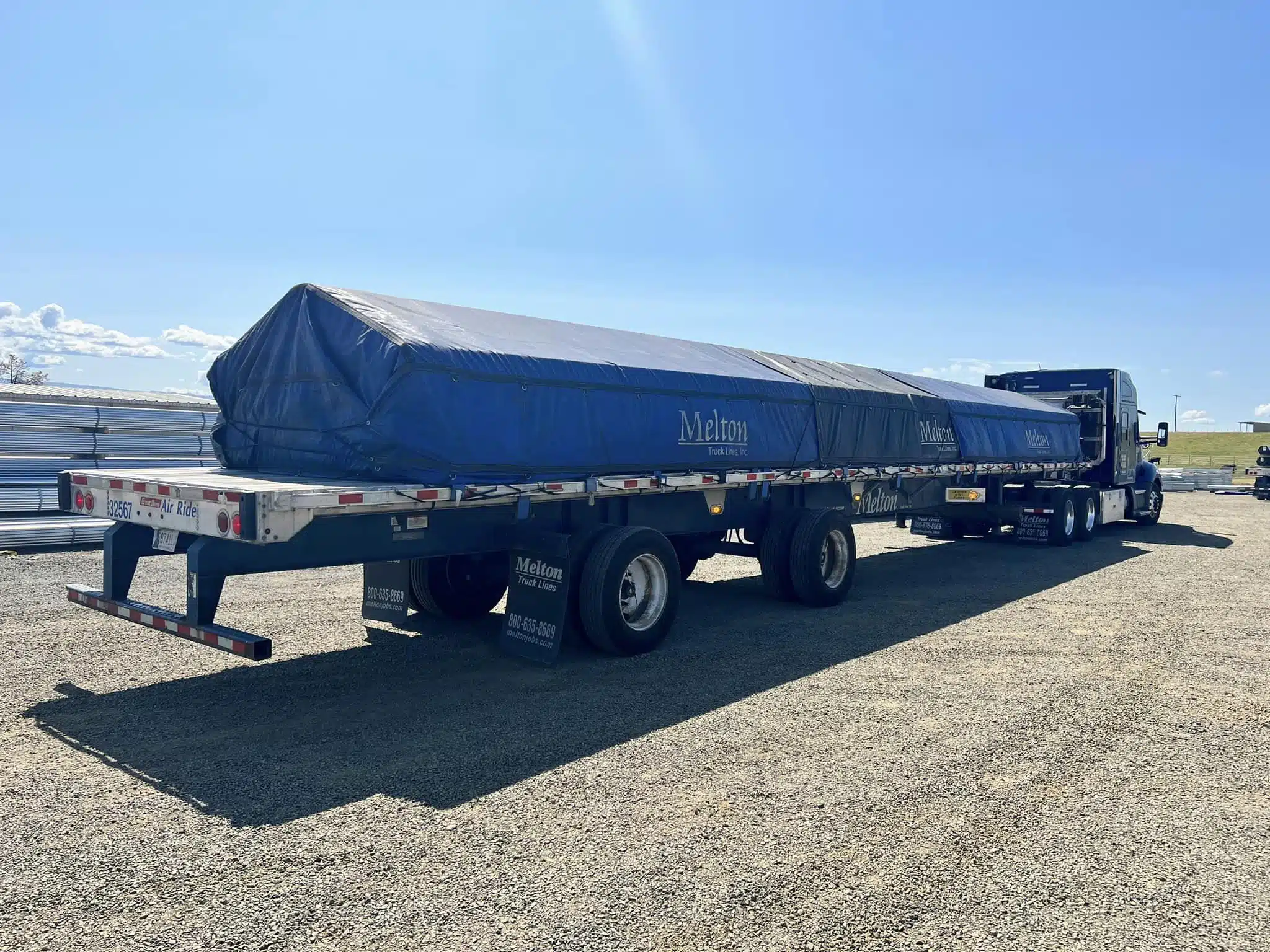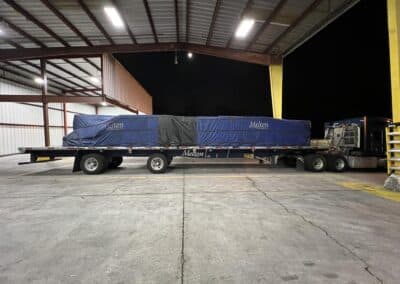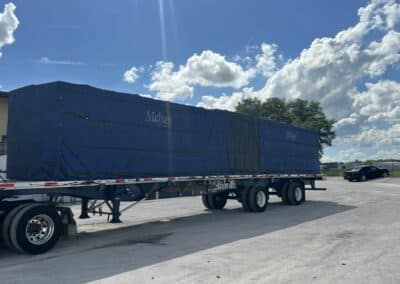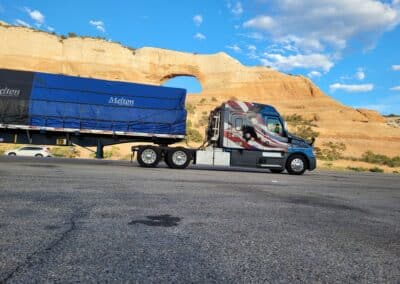
What is Tarp Pay?
Any truck driver knows that fair compensation is extremely important in the industry. Truck driving is both a difficult and important job, so drivers should be paid fairly for the time and work they put in to keeping the U.S. moving. That’s why tarp pay is crucial in the flatbed industry and is something any prospective flatbed trucker should be looking at when deciding on a company. A company providing tarp pay indicates that they understand the extra effort that comes with tarping a load, as well as how much customers depend on truckers doing a thorough job securing and tarping their cargo. In this blog, we’re going over the facts about tarp pay and why Melton is proud to have some of the highest tarp pay rates in the trucking industry!
What is Tarp Pay in Trucking, and Why is it Important?
Tarp pay is the additional compensation a flatbed driver earns for securing and protecting a load with a tarp to transport it safely to the customer. Tarps add protection from road grime, moisture, and harsh environmental conditions for loads that can’t be properly transported in an enclosed trailer. A tarp is only effective when applied correctly and secured tightly. Proper tarping ensures these elements don’t touch the freight. Melton dedicates a two-week orientation course focused on securement training to ensure drivers have the right skills to tarp any load with confidence.
How is Tarp Pay Paid Out?
At Melton, we offer $100 per tarped load. This means you’ll receive $50 to put the tarp on, and $50 to remove the tarp.
How Do You Tarp a Flatbed Load?
Melton will teach you everything you need to learn about tarping flatbed loads in our truck driver training.
How Many Loads Require Tarping?
The amount of loads that require tarps varies. On average, 2 out of 3 loads require tarps – especially in the colder months. Loads coming out of the west almost always require tarping.
How Long Does Tarping Take?
The time it takes to tarp a load varies depending on a few things: the type, size, and shape of the freight, weather conditions, and your level of experience.
Melton Truck Lines as a Tarp Pay Pioneer
Tarping and securing loads can be difficult and labor-intensive, which is why many companies offer small bonuses for each load tarped or may pay their flatbed divisions higher rates than a standard dry van trucker. Melton is exclusively a flatbed company, so we understand the importance of fair compensation for our flatbedders.
In 2021, Melton conducted a driver wide survey which found an increase in tarp pay would be the most meaningful pay increase, so we decided to double it. Since then, we’ve continued to lead the flatbed industry in paying drivers $100 per tarp job. After doubling tarp pay to $100 per load, this increased compensation translates to an additional $0.06 CPM — which equates to an average of up to an extra $10,000 or more annually on top of our base truck driver pay. We see tarp pay as a crucial investment that lets you know we appreciate the work you do to ensure the safety of not just the load, but everyone driving around you as you go from point A to point B.
Melton’s emphasis on driver satisfaction sets us apart from other companies, and we’re proud to provide our drivers an extra source of income on top of our industry-leading base pay scale and bonuses for fuel conservation, driver career paths, and more. Check out some related blog posts below, and we hope to see you on the road!




